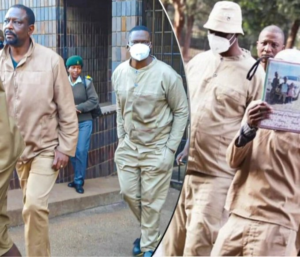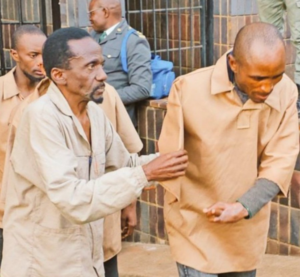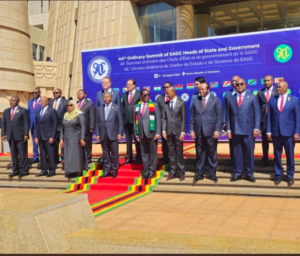PARTISAN JUDICIALISATION AND AUTHORITARIAN RULE: ZIMBABWE’S DEMOCRACY IN PERIL
In a troubling turn of events, Zimbabwe’s upcoming general elections on 23 August have taken a disconcerting twist, as the nation witnesses the disqualification of 12 opposition parliamentary candidates in Bulawayo and independent presidential candidate Saviour Kasukuwere. This alarming move, executed by what many perceive as increasingly politicised and captured courts, has ignited concerns over the erosion of democratic values and the consolidation of authoritarianism under President Emmerson Mnangagwa and his ruling party, Zanu PF. This controversial manipulation of the electoral process through judicial means marks a disturbing high watermark in Zimbabwe’s journey towards a partisan judicialisation of politics, with ramifications that may further entrench the dominance of Zanu PF’s rule.

The very foundation of Zimbabwe’s democratic principles is under threat, as the nation grapples with the blatant subversion of its electoral integrity. Zanu PF, a party known for its adept use of both persuasion and coercion, has consistently employed a carrot-and-stick approach to secure its electoral victories. From leveraging patronage and vote-buying to resorting to coercion, intimidation, and even violence, the party has maintained its grip on power since its ascent to authority in 1980. The ousting of the long-standing former president Robert Mugabe in 2017, followed by Mnangagwa’s rise to power through a military coup, did little to alleviate concerns about the party’s authoritarian tendencies.
However, the recent disqualification of opposition candidates and the independent presidential hopeful unveils a deeply concerning dimension – the manipulation of the judiciary to further the ruling party’s political agenda. The courts, once considered a beacon of impartiality and justice, now appear to be succumbing to political influence. This sinister trend, termed ‘partisan judicialisation’, raises alarm bells over the independence of the judiciary and its susceptibility to being co-opted for political gains.
President Mnangagwa’s decision to extend Chief Justice Luke Malaba’s tenure by five years in 2021 only exacerbates the growing apprehension. This move, shrouded in controversy due to constitutional changes that facilitated the extension, solidifies the intertwining of the judiciary with Zanu PF’s survival strategy. Such actions are emblematic of a system that is increasingly dominated by a juristocracy, where judicial power is exploited to perpetuate and consolidate authoritarian rule.
Zimbabwe’s democratic aspirations are hanging in the balance, as the country teeters on the precipice of a full-blown crisis. The international community, once hopeful for democratic progress, must acknowledge the urgency of the situation. As the country’s 43-year-long history with Zanu PF’s rule reveals, the party’s mastery of manipulation extends far beyond the polling stations.
The international community, along with regional partners, must come together to address this concerning trajectory. Sanctions, diplomatic pressure, and targeted interventions can play a pivotal role in urging Zimbabwe to recalibrate its democratic compass. The people of Zimbabwe deserve a future that respects their fundamental rights and upholds the principles of fair and free elections.
The disqualification of opposition candidates in Bulawayo and the independent presidential hopeful, orchestrated by politicised and captured courts, illuminates the distressing journey of Zimbabwe towards partisan judicialisation and intensified authoritarianism. With the judiciary becoming an accomplice in consolidating power, President Mnangagwa and Zanu PF’s hold on the nation’s political landscape tightens. As Zimbabwe’s democratic institutions face unprecedented challenges, the global community must rally to ensure that the country’s trajectory bends back towards the path of true democracy and justice.




